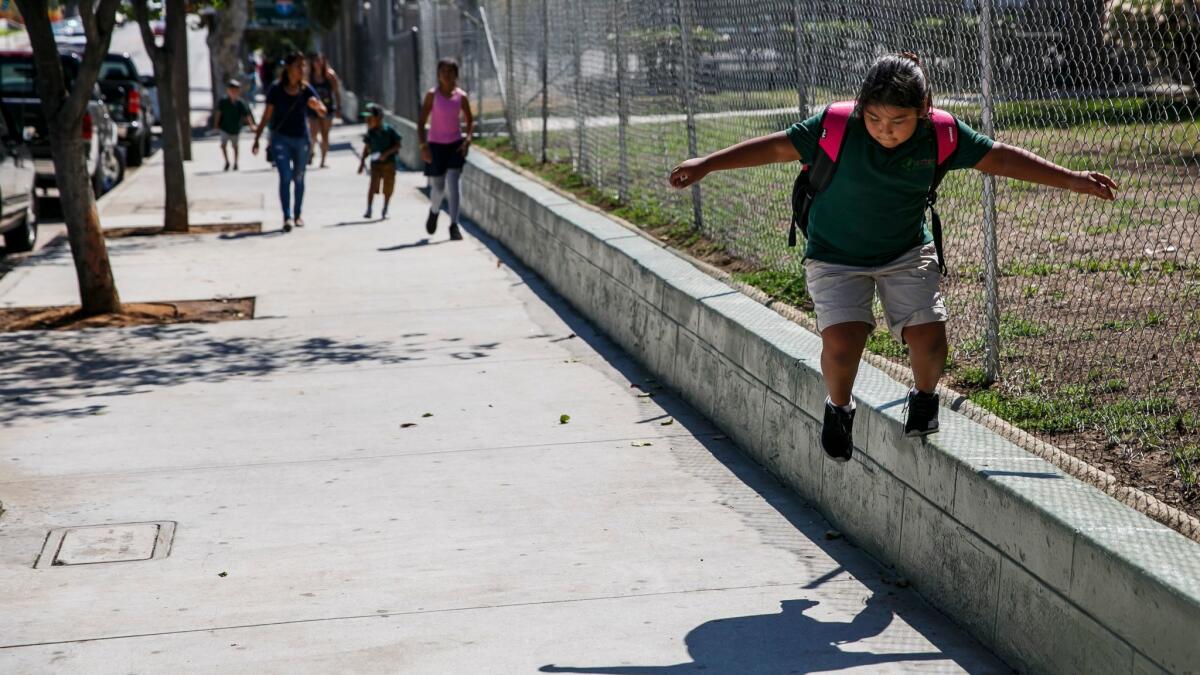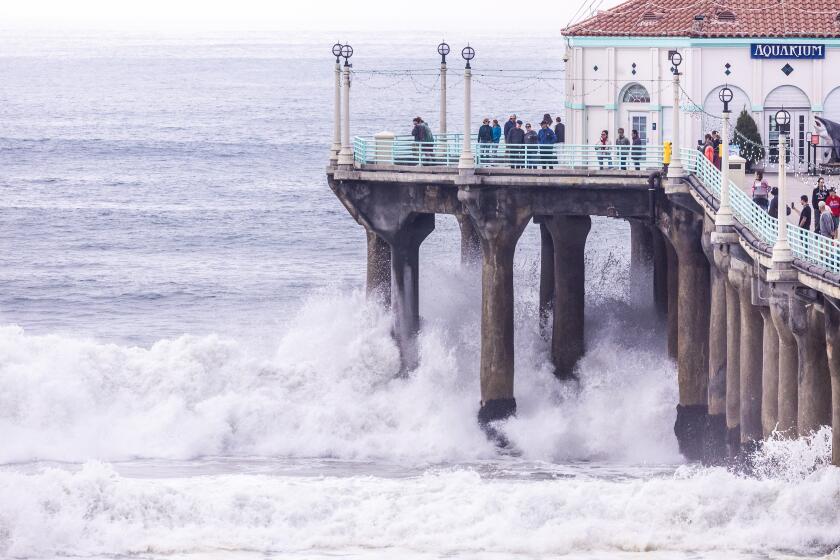Exide cleanup: State testing more schools, parks and day-care centers for lead danger

California regulators have begun testing soil at more preschools, day-care centers, parks, private schools and community facilities near the closed Exide Technologies battery recycling plant as part of an ongoing effort to find and remove lead contamination.
The 19 locations being evaluated for the brain-damaging metal are in Boyle Heights, East Los Angeles, Maywood, Bell and Huntington Park, according to a recently released plan by the state Department of Toxic Substances Control.
Crews began sampling those facilities earlier this week and expect to complete the work before the end of the year, the department said in a statement Friday. “Our priority is to get these properties sampled quickly . . . so that cleanup can begin right away.”
The department identified the properties by canvassing neighborhoods, a spokesman said, and the number of private schools and parks may grow as it continues gathering information.
State regulators believe decades of lead emissions from the Exide plant spread across seven southeast L.A. County communities and are testing thousands of homes to determine if they must be cleaned of lead-tainted soil.
So far authorities have sampled more than 4,400 residential properties -- slightly less than half of the parcels within a 1.7-mile radius of the facility -- and have cleaned about 240. They have also tested some schools and parks in the area.
Crews have already tested the soil at two dozen public schools within the cleanup zone surrounding the former Vernon lead smelter. State regulators determined that three had lead levels that required cleanup.
An L.A. Unified School District spokeswoman said soil removal has been completed at two of those campuses and that work at the remaining school, Lorena Street Elementary in Boyle Heights, is scheduled to begin next week.
Sampling conducted previously at two of the 19 new locations detected elevated lead levels, according to the state agency’s soil-testing plan. St. Rose of Lima school in Maywood had levels up to 241 parts per million and Our Lady of Victory school in East Los Angeles had levels of up to 216 ppm, according to the report.
Bell City Manager Howard W. Brown Jr. said he had not heard when the state would conduct soil testing at Treder Park, its skate park, City Hall, library and police department.
In a recent letter, Brown asked the toxic substances department to expand the testing area, clearly articulate its standards for remediation and make soil sampling results “available to the public via an easily accessible database.”
“It is only with these improvements in the process that the public will have the confidence in the ultimate results of your efforts,” Brown wrote on Sept. 20.
Soil sampling records show the vast majority of homes tested so far near Exide have lead levels above the state standard of 80 parts per million. Many properties exceed the federal standard of 400 ppm considered hazardous in bare soil where children play. And some have readings well above the hazardous waste level of 1,000 ppm.
Lead is a potent neurotoxin that is most dangerous to young children who can ingest it through contact with contaminated soil and dust. The toxic metal causes permanent learning deficiencies and developmental problems, even in small amounts.
Earlier this year the department released a list of dozens of child-care facilities in the cleanup area, including home day-care businesses. But officials have not answered questions about how many of those facilities have been sampled or cleaned, nor have they disclosed whether parents or the public will be notified of any elevated levels.
The Vernon facility, about five miles from downtown Los Angeles, melted down used lead-acid car batteries, releasing lead, arsenic and other dangerous air pollutants into surrounding communities for decades while operating under a temporary permit from the state.
Exide agreed to shut down the facility permanently in March 2015 to avoid federal criminal prosecution after years of community outcry over air pollution and a long history of environmental violations.
The toxics department plans to use $176.6 million appropriated by state lawmakers earlier this year to test all 10,000 properties near the plant and clean more than 2,000 where lead contamination poses the highest risk.
UPDATES:
5:40 p.m.: This article was updated with additional details and a statement from the Department of Toxic Substances Control.
This article was originally published at 1:10 p.m.
More to Read
Sign up for Essential California
The most important California stories and recommendations in your inbox every morning.
You may occasionally receive promotional content from the Los Angeles Times.











